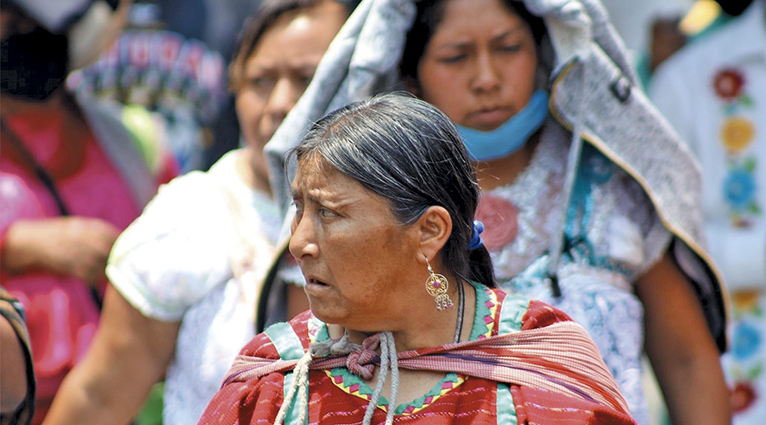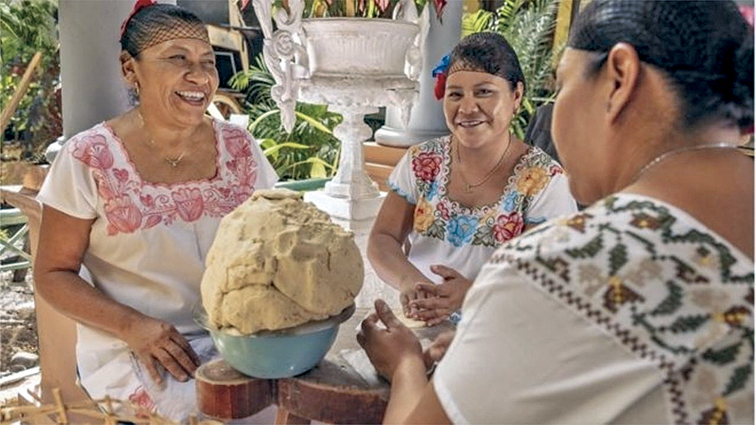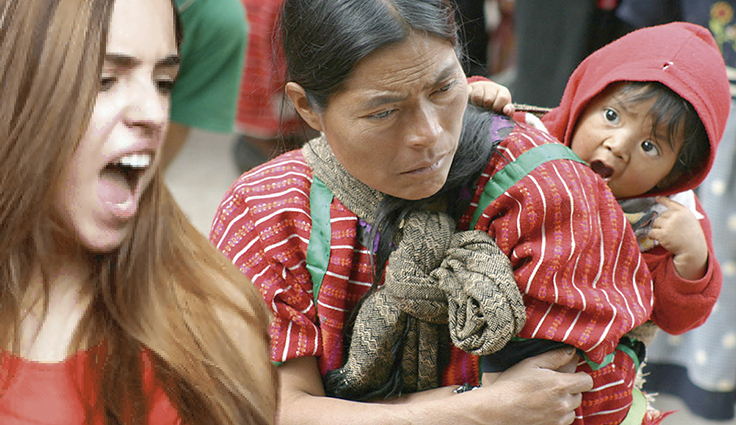Debate sobre racismo en México / Debate over racism in Mexico
La chispa que lo encendió fue el homicidio del afroestadounidense George Floyd bajo custodia de la policía de Minneapolis el pasado 25 de mayo.
La muerte de George Floyd desató en México un debate sobre el racismo “del que nadie quiere hablar”. La chispa que lo encendió fue el homicidio del afroestadounidense George Floyd bajo custodia de la policía de Minneapolis el pasado 25 de mayo.
Los mexicanos usaron las redes para condenar lo ocurrido, pero muchos reprocharon que no hace falta precisamente mirar hacia el vecino del norte para ver muestras de racismo alrededor.
Y más teniendo en cuenta que en, el propio México, más de la mitad de la población reconoce que se le insulta por el color de su piel, según el Consejo Nacional para Prevenir la Discriminación.
“Siempre que hablabas de racismo, en México te decían: ‘No, aquí no hay negros, racismo hay en EE.UU.’. Es interesante ver cómo lo ocurrido con Floyd está evocando lo que aquí sucede”, dice César Carrillo Trueba, antropólogo autor del libro “El racismo en México: una visión sintética”.
“Acusar al país del norte como racista es parte de nuestro DNA nacionalista que viene desde que perdimos la mitad del territorio mexicano. Es como decir: ‘Sí, lo perdimos, pero mira que racistas son ellos”, coincide Emiko Saldívar Tanaka, cofundadora del Colectivo para Eliminar el Racismo en México (COPERA).

El racismo en México
• 64,6%de personas en México se considera de piel morena.
• 54,8%afirma que se les insulta por el color de piel.
• 15%cree que sus derechos son violentados por el color de piel.
Una de las conversaciones más acaloradas en redes sobre este tema fue la iniciada por el actor mexicano Tenoch Huerta, quien preguntó en Twitter cuándo dejaría de ser tabú hablar del racismo en su país.
Pero fue la respuesta del también actor Mauricio Martínez quien desató la polémica al negar que el racismo de México y EE.UU. fueran comparables y hacer un símil entre Benito Juárez y Barack Obama.
Cientos de tuiteros reprocharon a Martínez que su visión estuviera condicionada precisamente por su color blanco de piel.
Durante los días siguientes, el hashtag #MéxicoRacista fue uno de los más utilizados por quienes quisieron evidenciar que el problema existe también en su país.
Muchos usuarios incluso compartieron algunas de las situaciones en las que fueron discriminados por su color de piel.
Y aunque expertos afirman que el debate sobre el racismo se abrió en México en los últimos años, aún tiende a ser una cuestión que queda invisibilizada por la resistencia de parte de la población a aceptarlo.
“La gente te dice que no, que no es racista. Por otro lado, alguien que acepta que es objeto de racismo, está aceptando que tiene cara de indio. Y eso tampoco lo quiere. Así que hay racismo por los dos lados”, resume tajante Carrillo Trueba.Pese a lo generalizado de estas frases, la también profesora de sociología en la Universidad de Cambridge en Reino Unido alerta de peligro de estos “microrracismos” cotidianos en términos de discriminación.
Moreno Figueroa también recuerda la discriminación habitual a la hora de publicarse ofertas de trabajo pidiendo “buena presencia” en los que, bajo ese eufemismo, se refieren a “entre más blanco y facciones más finas como esa idea de lo bueno, de lo elegante… mejor”.
Otra crítica que se repitió estos días en redes fue la escasísima representación que la población mestiza tiene en publicidad y medios de comunicación, totalmente copados por mexicanos de piel blanca. (BBC)

Debate over racism in Mexico
The spark that ignited it was the murder of African-American George Floyd in Minneapolis police custody on May 25.
Mexicans used the networks to condemn what happened, but many reproached that it is not necessary to precisely look towards the northern neighbor to see signs of racism around.
Mexicans used the networks to condemn what happened, but many reproached that it is not necessary to precisely look towards the northern neighbor to see signs of racism.
This is all the more relevant considering that in Mexico itself, more than half of the population recognizes that they are insulted because of the color of their skin, according to the National Council to Prevent Discrimination.
“Whenever you talked about racism, in Mexico they would tell you: ‘No, there are no blacks here, there is racism in the US’. It is interesting to see how what happened with Floyd is evoking what is happening here,” says anthropologist César Carrillo Trueba, author of the book “Racism in Mexico: a synthetic vision.”
“Accusing the country to the north of racism is part of our nationalist DNA that comes from the fact that we lost half of Mexican territory. It is like saying: ‘Yes, we lost it, but look how racist they are,” agrees Emiko Saldívar Tanaka, co-founder of the Collective to Eliminate Racism in Mexico (COPERA).

Racism in Mexico
• 64.6% of people in Mexico consider themselves to be brown skinned.
• 54.8% affirm that they are insulted due to skin color.
• 15% believe that their rights are violated by skin color.
One of the most heated conversations on this topic was the one initiated by the Mexican actor Tenoch Huerta, who asked on Twitter when it would be no longer taboo to talk about racism in his country.
But it was the response of the also actor Mauricio Martínez that sparked controversy by denying that racism in Mexico and the United States were comparable, and compared Benito Juárez with Barack Obama.
Hundreds of tweeters reproached Martinez that his vision was conditioned precisely by his white skin color.
During the following days, the hashtag #MéxicoRacista was one of the most used by those who wanted to show that the problem also exists in their country.
Many users even shared some of the situations in which they were discriminated against due to their skin color.
And although experts affirm that the debate on racism has opened up in Mexico in recent years, it still tends to be an issue that is invisible due to resistance on the part of the population to accept it.
“People tell you no, they are not racist. On the other hand, someone who accepts that he is the object of racism, is accepting that he has an Indian face. And he does not want that either. So there is racism on both sides,” summarizes Carillo Trueba sharply.
Despite the generality of these phrases, the professor of sociology at the University of Cambridge in the United Kingdom warns of the danger of these everyday “micro-racisms” in terms of discrimination.
Moreno Figueroa also remembers the usual discrimination when it comes to posting job offers asking for “good looks” in which, under that euphemism, they refer to “whiter and finer features as that idea of good, elegant … best.”
Another criticism that was repeated these days in networks was the scarce representation that the mestizo population has in advertising and the media, areas dominated by white-skinned Mexicans. (BBC)


 (1) (2).jpg)


Debe estar conectado para enviar un comentario.